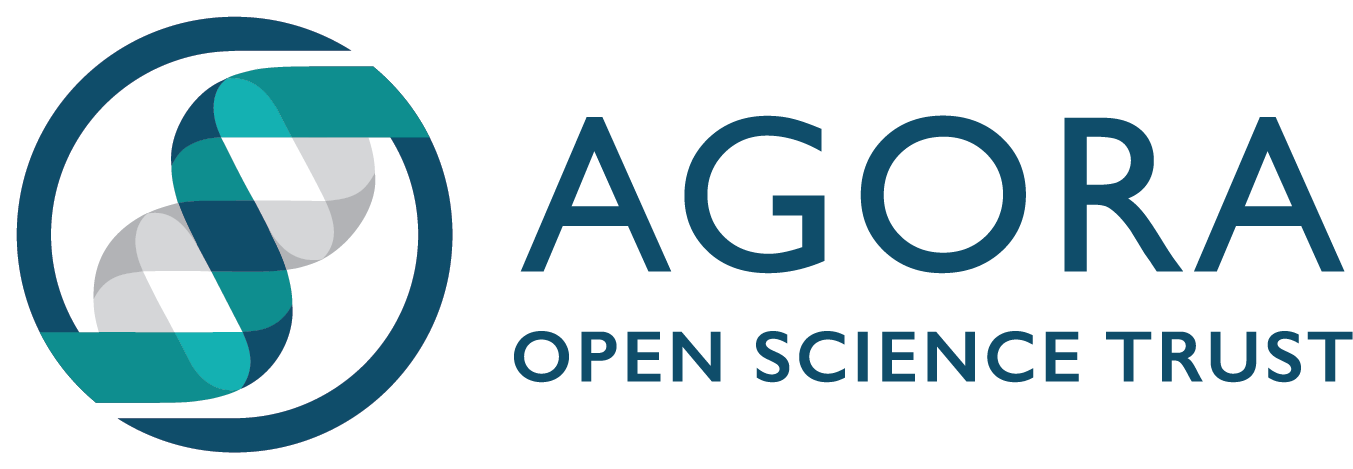Building a Better Future for Open Drug Discovery: Agora and M4K at the Conscience Symposium 2025
By Sofia Melliou
Earlier this month, the Agora Open Science Trust joined researchers, funders, and patient advocates at the Conscience Symposium in Montreal. This two-day event featured talks and workshops focused on transforming drug discovery through open science.
Agora’s CEO, Max Morgan, and VP of Drug Discovery, Peter Sampson, attended on behalf of the organization, each presenting on how Agora and its open science initiative, M4K Pharma, are challenging traditional models of drug development and driving scientific innovation by public interest rather than proprietary gain.
Advancing Open Drug Discovery Through DMOS
Earlier this year, Agora announced that it had been awarded three grants through Conscience’s inaugural Developing Medicines through Open Science (DMOS) program. This CAD ~$2.45 million in funding is helping Agora and its partners accelerate research into rare diseases that have been historically underfunded and underserved.
On the left, Dr. Sonya McParland, Senior Scientist in the Ajmera Transplant Centre at UHN and an Associate Professor in the University of Toronto’s department of Laboratory Medicine and Pathobiology and the department of Immunology. On the right, Peter Sampson, VP of Drug Discovery, Agora Open Trust.
In a session dedicated to the first DMOS grantees, Peter Sampson and Dr. Sonya MacParland took to the stage to present these DMOS-supported projects, each targeting a disease with no approved treatments:
An ALK2 inhibitor for Diffuse Intrinsic Pontine Glioma (DIPG): an aggressive pediatric brain cancer with no approved therapies. This project, now entering IND-enabling studies, builds on years of collaborative research to deliver a brain-penetrant, selective compound that has shown promise in preclinical models.
PRMT6 inhibitors for Spinal Bulbar Muscular Atrophy (SBMA): a rare genetic disorder with no disease-modifying treatments. In partnership with Dr. Rachel Harding (Structural Genomics Consortium) and Dr. Mark Reed (University Health Network), this initiative advances a promising hit-to-lead series under a fully open framework.
SYK inhibitors for Primary Sclerosing Cholangitis (PSC): a chronic liver disease with no therapeutic options. In partnership with Dr. Sonya MacParland, this project explores the preclinical efficacy of SYK inhibitors.
Rethinking the Business Model: No Patents, No Problem
Max Morgan’s presentation, Combining Open Science and Regulatory Exclusivity to Address Pharmaceutical R&D Market Failures, was part of a broader panel titled Multiplying Paths to Open Drug Discovery. The session challenged the notion that successful drug development requires patent monopolies, highlighting instead the role of regulatory exclusivities in enabling innovation while preserving openness.
Max Morgan, CEO of Agora Open Trust presenting at the Conscience Symposium.
Drawing on recent work co-authored with Richard Gold, Max outlined how regulatory exclusivities can provide sufficient commercial protection while avoiding the delays, secrecy, and inequities associated with patents. This model underpins M4K Pharma’s mission to develop affordable, effective treatments for children with rare diseases like DIPG.
Patient Voices at the Center
Mary Pressley Vyas, President and Co-Founder of PSC Partners Seeking a Cure Canada, presenting at the Conscience Symposium.
While much of the symposium centered on data sharing, incentive structures, and policy reform, it was the presence of patients and caregivers that reminded attendees of the human urgency behind this work. Among the most powerful moments was a presentation by Mary Pressley Vyas, President and Co-Founder of PSC Partners Seeking a Cure Canada and a parent of a child living with PSC, who joined Dr. Sonya MacParland during her session.
Mary’s personal story grounded the scientific discussion in the day-to-day realities faced by families navigating rare diseases. Her message was clear: the current system isn’t working fast enough, and open collaboration between doctors, researchers and patient groups offers a more hopeful path forward.
Looking Ahead
Agora and M4K left the symposium energized and more committed than ever to building a research ecosystem where openness accelerates progress and drives accountability. As the DMOS-funded projects progress, Agora will continue to share all scientific data, collaborate with new partners, and work to ensure that the treatments we develop are not only effective but also accessible.
For more information about Agora’s mission and ongoing initiatives, visit agoraopensciencetrust.org.



